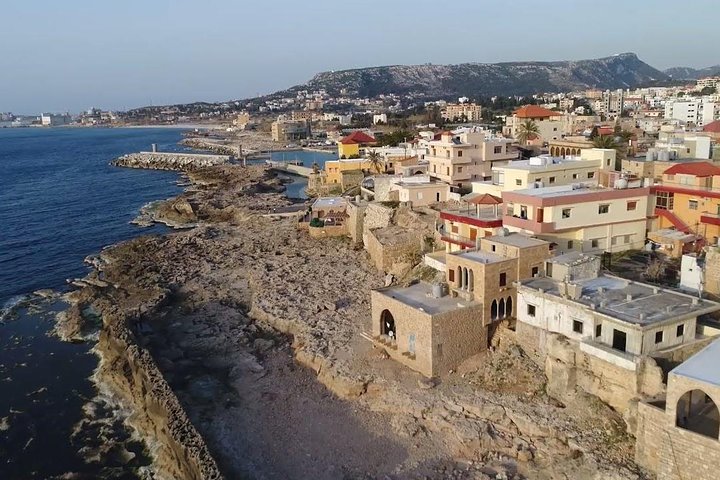Unveiling Lebanon’s Soul: A Day in Tripoli and Batroun
Eager to explore the rich tapestry of Lebanon’s history, I embarked on a day tour of Tripoli and Batroun. Guided by the passionate Albert, I delved into the ancient streets and vibrant souks, uncovering the spiritual connections that bind us to the past.
A Journey Through Time: The Citadel and Souks of Tripoli
As the sun rose over the Mediterranean, I found myself embarking on a journey that promised to be both enlightening and spiritually enriching. Our guide, Albert, was a fountain of knowledge, his passion for Lebanon’s history and culture evident in every word he spoke. Our first stop was the ancient city of Tripoli, a place that has stood the test of time, its streets echoing with the whispers of centuries past.
The Citadel of Saint Gilles, or Qal’at Sinjil, loomed majestically over the city, a testament to the layers of history that have shaped this region. As I walked through its ancient corridors, I could feel the presence of those who had come before me—Crusaders, Mamluks, and Ottomans—all leaving their mark on this formidable fortress. The Citadel’s architecture, a blend of various eras, spoke to the resilience and adaptability of the people who have called Tripoli home.
From the Citadel, we ventured into the bustling souks, a vibrant tapestry of colors, sounds, and scents. The souks of Tripoli are a living museum, each stall a chapter in the city’s rich history. As I wandered through the narrow alleys, I was reminded of the souks of Cairo, where I spent my childhood, and the sense of community and tradition that they embody. Here, in Tripoli, the souks were alive with the spirit of the past, offering a glimpse into the daily lives of those who have walked these streets for generations.
Batroun: A Coastal Gem
Leaving the historical depths of Tripoli, we journeyed to the coastal town of Batroun, a place where the ancient and the modern coexist in harmony. Batroun’s charm lies in its ability to transport you back in time while offering the comforts of the present. As we strolled through its streets, Albert shared stories of the Phoenicians who once thrived here, their legacy etched into the very fabric of the town.
The highlight of our visit to Batroun was undoubtedly the lunch at a local Armenian kebab shop. The flavors were a delightful fusion of tradition and innovation, each bite a testament to the rich culinary heritage of the region. As we dined, I reflected on the importance of food in connecting us to our past, a theme that resonates deeply with my own journey as a travel writer.
Batroun’s ancient sea wall, a marvel of Phoenician engineering, stood as a guardian against the relentless waves. Walking along this historic barrier, I felt a profound connection to the seafarers of old, their spirit of adventure and resilience inspiring my own travels. Batroun, with its blend of history and modernity, left an indelible mark on my soul, a reminder of the enduring power of cultural heritage.
Reflections on a Day Well Spent
As the day drew to a close, I found myself reflecting on the profound experiences that had unfolded. The Batroun and Tripoli Tour had not only enriched my understanding of Lebanon’s history but also deepened my appreciation for the spiritual connections that bind us to the past.
Albert’s passion for his homeland was infectious, his insights offering a window into the soul of Lebanon. This journey through Tripoli and Batroun was more than just a tour; it was a pilgrimage of sorts, a chance to walk in the footsteps of those who have shaped the region’s history.
In a world that often feels disconnected, experiences like these remind us of the importance of preserving our cultural heritage and the stories that define us. As I returned to my hotel, I carried with me not just memories of a day well spent, but a renewed sense of purpose in my own journey as a travel writer. This tour was a testament to the power of travel to transform and inspire, a reminder that the past is always present, waiting to be discovered anew.



































